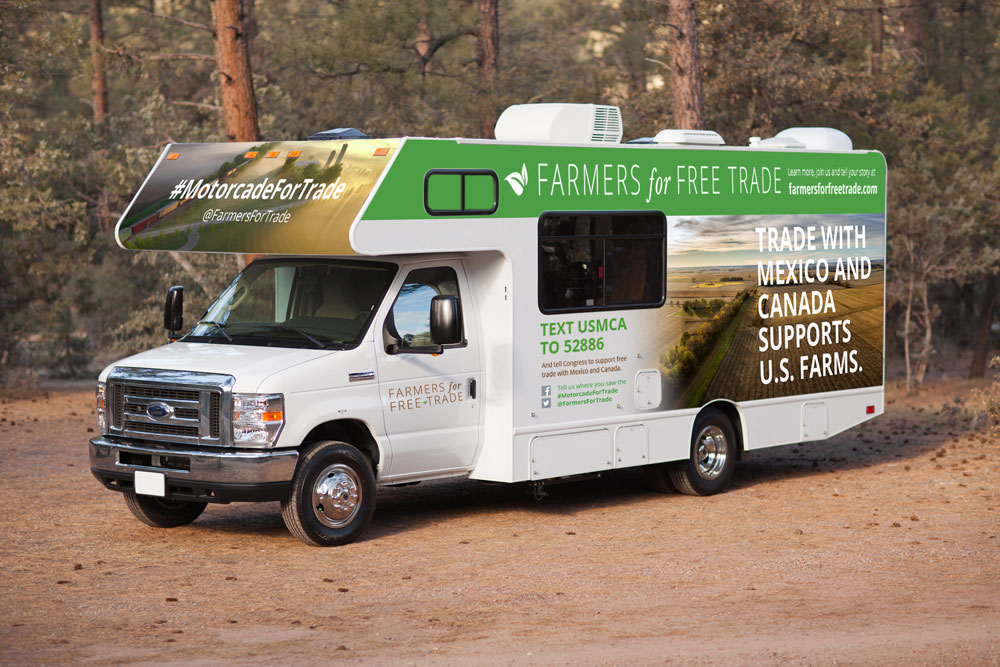From rural America to Pennsylvania Avenue, farmers concerned about the high cost of inputs and the impact of tariffs on their livelihood took their message across the country, concluding this week in Washington, DC. Brian Kuehl, executive director of Farmers for Free Trade, says their motorcade covered more than 8-thousand miles, and they heard from farmers from across the spectrum.
“Three days ago, we were in Clark’s Summit, Pennsylvania, up near Scranton, and had an event with Congressman Bresnahan, and we had the president of the Pennsylvania Farm Bureau, Pennsylvania Grange, Pennsylvania Potato Co Op, Pennsylvania Milk, so a whole range of interests sitting together talking about how each of those sectors is being impacted by high input costs. You know, price of fertilizer, price of farm chemicals, price of steel.”
Kuehl says they took what they heard to Congress, and hope they take action.
“Number one, we’d like to see tariff exemptions on farm inputs. Number two, we think we really need to over index on expanding market opportunities for farmers. We need to, we need to grow those overseas markets, especially as we’ve created turbulence that’s shutting down markets. It’s good that China’s coming back online, but we’ve had months where they haven’t bought soybeans, and that’s really hurt. And then number three, and this is a big one, we need to just stabilize the US-Mexico-Canada Agreement, that trade relationship with our neighbors to the north and south, the biggest ag export destinations for a lot of commodities.”
Keuhl says FFT’s work is not done.
“We’ll continue to be active on the Hill, talking with members of Congress and talking with farmers all over the US. I’d give a hat tip to all the organizations that support Farmers for Free Trade, whether that’s in corn or soy or dairy, we’ve got a lot of folks rowing in the same direction, and that’s because trade is so important.”


